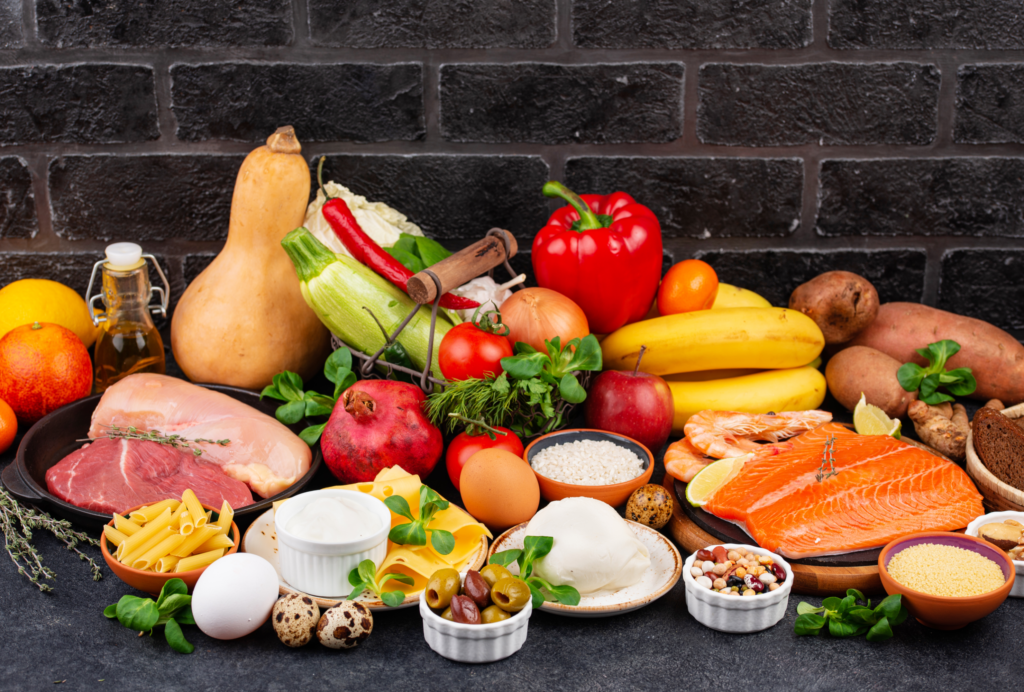The Mediterranean Diet is a shining example of a balanced and heart-healthy eating pattern. As this website predominantly focuses on the amazing health benefits of cold-pressed, extra virgin olive oil, it’s pertinent to see the relationship between this diet and the liquid gold that is extra virgin olive oil. In this article, we explore the Mediterranean diet, highlight its key components, and uncover the connection it shares with extra virgin olive oil.
Understanding the Mediterranean Diet
The Mediterranean diet is not merely a diet, it’s a lifestyle rooted in the eating habits of countries within the Mediterranean Sea areas. Its emphasis on fresh whole foods and heart-healthy fats has garnered attention from health experts and enthusiasts alike. This diet emphasizes:
- Abundant Plant Foods: Fruits, vegetables, leafy greens, legumes, nuts, seeds, whole grains and herbs.
- Healthy Fats: Replacing saturated fats with healthy monounsaturated fats is central. This is where extra virgin olive oil takes center stage.
- Moderate Fish and Poultry: Fish and poultry are consumed in moderation, providing lean protein sources.
- Red Wine in Moderation: For those who wish to drink alcohol with their meals, red wine can be enjoyed in moderation. Red wine has been recommended by health professionals for its polyphenol rich health benefits.
- Limited Red Meat: Lean red meat consumption is minimized, keeping it as an occasional indulgence.
- Social and Physical Activity: The Mediterranean lifestyle includes regular physical activity and the tradition of communal meals, emphasizing social interactions.
The Olive Oil Connection
Extra virgin olive oil, affectionately referred to as the cornerstone of the Mediterranean diet, plays a vital role in both culinary and health contexts. Extracted from the first press of fresh olives, this process preserves the fruit’s natural flavors, aromas, and nutrients. The relationship between the Mediterranean diet and extra virgin olive oil is intricate and profound:
- Monounsaturated Marvel: Extra virgin olive oil is primarily composed of monounsaturated fats, which are considered heart-healthy fats. These fats have been linked to improved cholesterol levels and reduced risk of heart disease.
- Antioxidant Arsenal: Extra virgin olive oil boasts a wealth of antioxidants, particularly vitamin E and polyphenols, which combat oxidative stress and inflammation.
- Anti-Inflammatory: The polyphenols in natural extra virgin olive oil have been found to possess potent anti-inflammatory properties similar to Ibuprofen, contributing to overall health and well-being for those with chronic inflammatory conditions.
- Brain and Body Benefits: Some studies suggest that the Mediterranean diet, with its prominent olive oil consumption, could be associated with a reduced risk of cognitive decline and neurodegenerative diseases.
- Cardiovascular Champion: The Mediterranean diet, enriched with extra virgin olive oil, has been linked to a lower risk of cardiovascular disease, including reduced incidence of stroke and heart attacks.
Incorporating Extra Virgin Olive Oil
If you are interested in embracing the Mediterranean diet, incorporating extra virgin olive oil into your culinary repertoire is a delicious and nutritious choice. Whether used for sautéing, drizzling over salads, or as a dipping sauce for fresh bread, extra virgin olive oil’s versatility knows no bounds. Its rich, fruity and slightly peppery flavor enhances dishes and promotes the feeling of being full after eating, making it an essential component of the Mediterranean diet.
This website’s focus on the health benefits of cold-pressed extra virgin olive oil aligns harmoniously with the Mediterranean Diet, making it a valuable resource for those seeking to optimize their dietary choices for health and well-being.
If you purchase EVOO or any product through this site, we make a small commission from Amazon at no additional cost to you.
Before starting any diet or making changes to your current eating habits, you should consult with your doctor or a licensed dietary health professional.
Please leave a comment, question or suggestion below.
Tom – Olive Oil Lover


